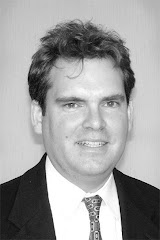Tuesday, February 05, 2013
Spacey shows genius in breaking fourth wall
“No one’s a Boy Scout, not even a Boy Scout.”
“I hate children. There, I said it.”
— Francis Underwood in “House of Cards”
The just-released, made-for-Netflix political drama “House of Cards,” 13, 50-minute episodes rolled out in a delicious package, is so damn good it makes you wonder why you spent all that time 10 years ago watching “The West Wing.”
I can’t think of many political dramas to rival the modern American “House of Cards,” based on the popular British show with the same format of 20 years ago.
The “West Wing” brought out the Lone Ranger narrative of American politics, the elevation of the transformational figure battling the system. “West Wing,” with its syrup and uplift, sought to make our chests burst with pride in America, as if we were all bounding down the steps of the Lincoln Memorial with the closing credits.
“House of Cards” goes the other way. It surrenders to the system, showcases the chewers and the chewed in American politics. It is, in a word, fantastic.
The series stars Kevin Spacey as the ruthless U.S. House majority whip from South Carolina. A newly elected president double-crosses Spacey on an expected appointment as secretary of state. So Underwood lays an elaborate plot to take down all associated with the president, to climb even higher in the food chain of Washington, D.C.
Childless and living in a political partnership with a disturbing open marriage, Underwood and wife, Claire, played by Robin Wright, team to destroy reputations, sabotage careers and even pass some education reform along the way — although it’s not really for the kids, because the congressman hates kids.
If you have Netflix, the video streaming service with a handsome catalog of movies and television shows, you likely understand the concept of TV marathoning, being able to watch, say, 40 episodes of “Mad Men” or “Prison Break” or “Sons of Anarchy” on a weekend with no commercial interruption.
“House of Cards” debuted at midnight on Friday, and broke with TV tradition, by presenting all episodes in a juggernaut, the first-of-its kind original programming for Netflix.
“Our goal is to shut down a portion of America for a whole day,” the producer Beau Willimon tells The New York Times. The highly talented director David Fincher (“The Social Network” and “Fight Club”) is involved in the project as well.
Using the same winning technique as the BBC series, Fincher and Willimon’s “House of Cards” has Spacey break the fourth wall — speak directly at times, but sparingly, to the audience (through the imaginary “fourth wall” in front of the stage or TV set). Spacey thrives in these moments, reeling off laugh-out-loud gems about his motivations, intentions, his observations on the other players. At one point, speaking to a church congregation in South Carolina, Spacey cuts to us, and explains how he’s going to use God and the Bible to effect his own ends. He does the same thing before speaking to parents who just lost a child in a car accident. Richard III, meet Kevin’s Spacey’s Frank Underwood. Fair fight.
The producers of “House of Cards” nail the atmospherics of Washington, D.C., showing the side streets and views of the Metro train lines and neighborhood shots, giving it an authentic feel, as if you have been in the rib joint on the wrong side of town, or stopped by a Capitol Hill liquor store. They take you in a world, and Netflix lets you inhabit it for 11 hours in season one.
“House of Cards” gives us a supporting cast few series can rival. Corey Stoll is the alcoholic Philadelphia congressman. Kate Mara is the morally compromised journalist.
Sure, the plots are over the top at times. But like HBO’s “The Wire,” the Netflix drama doesn’t give us clear-cut characters, heroes standing in line here, villains over there.
Fact: Spacey is the star of “House of Cards.” It’s a remarkable performance from this Oscar-caliber actor.
But the city of Washington itself, our system of government, with all its beauty and flaws, are the larger-than-life characters.
There’s no political savior, a la Martin Sheen’s President Jed Bartlet.
The system wins. I suppose you could file that away as depressing.
Or reassuring in this age of celebrity. No one is bigger than America.
Regardless, “House of Cards” is supremely entertaining. Where did my Saturday go? You’ll be asking that, too. Or should.
Subscribe to:
Post Comments (Atom)






No comments:
Post a Comment